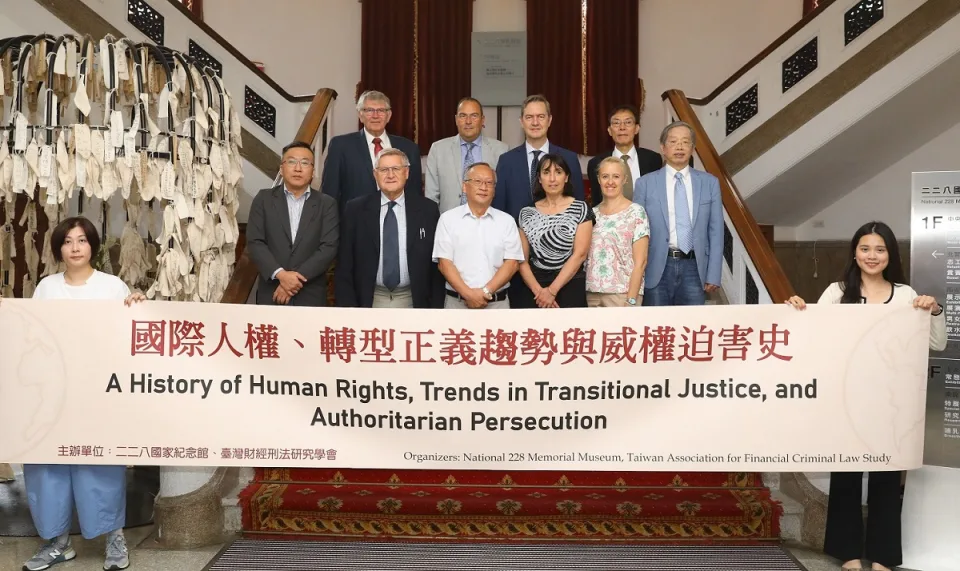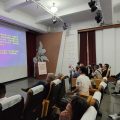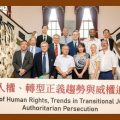Source : TW News Yahoo
[Reporter Guo Mengdi/Taipei Report] Taiwan’s democracy has been highly praised in the world, but is Taiwan’s transitional justice really in line with international standards? On July 28, a total of seven human rights leaders from five countries including the Netherlands, Belgium, France, the United States, and Italy Scholars and experts visited the February 28 National Memorial Hall to learn about the history of Taiwan’s authoritarian persecution and the process of transitional justice, and participated in the international human rights exchange forum jointly organized by the February 28 National Memorial Hall and the Taiwan Society for Economic and Criminal Law Studies. Human rights experts from various countries participating in the meeting believed that the February 28 incident was not an emergency, but a political massacre and racial division; at the same time, they were surprised that the Taiwan government set the transitional justice law back to before 1992, and believed that “this will Letting the facts of human rights violations be excluded is like letting landmines remain on the battlefield “.

Christine Mirre, vice-chairman of CAP-LC
Christine Mirre, vice-chairman of CAP-LC, the French Coordination for Individuals and Organizations Freedom of Conscience, said that what she felt during this visit was that the police and soldiers who originally rescued Taiwanese from Japanese occupation turned out to be protectors. oppressor. Taiwan must really turn the page, otherwise it will be a wound that has not yet healed. This is indeed unknown to Western countries. She believes that this is indeed a big wound for Taiwan.
Willy Fautré, co-founder and president of Human Rights Without Borders, said that an important goal of the European Union and the United Nations is to end impunity for those who commit serious human rights and humanitarian crimes. The European Union has also developed a comprehensive approach to help Transitional justice in non-EU countries. Hans Noot, chairman of the Gerard Noodt Foundation for Freedom of Belief in the Netherlands, said that too many historical cases show that the longer an authoritarian regime dominates culture, the longer it will take for society to resolve its legacy.
In addition to the February 28 incident, years of authoritarian rule have already penetrated into the judicial and administrative bureaucratic systems, and there are still many cases of human rights persecution in the post-authoritarian period. Human rights groups have expressed solidarity with Taiwan’s most urgent need to deal with the Taijimen case known as the Fashui 228 Incident. Professor Chen Zhilong, chairman of the Taiwan Institute of Finance and Criminal Law, said that the outbreak of the February 28th incident was due to the shooting of ordinary people during the inspection of cigarette taxes. Taiwan’s tax inspection system has tax incentives, which also affected the illegal execution of the Taijimen case. Judging from the Taijimen case, Taiwan appears to be a country ruled by law, but in fact it is a fake, and justice must be transformed, otherwise the people will have no human dignity.
Chen Zhilong also cited other cases, such as Chen Qingxu, a citizen of Keelung, who almost foreclosed his 2.5 million yuan ancestral home because he failed to pay a fine of 18,000 yuan; 4 million, the separation of wives and children are all persecution cases of authoritarian legacy.
Eric Roux, chairman of the European Interreligious Forum on Religious Freedom, believes that once the time limit for transitional justice is set, but in another period of time, there are injustices, violations of laws and abuses of power, then the complete truth cannot be discovered, and this period of injustice Times that are consistent with transitional justice are problematic. For example, after 1992, human rights abuses such as the Taijimen case still occurred in Taiwan. He called on the government to resolve the Taijimen case, restore his reputation, compensate him and make up for his mistakes. He also reminded people that they must face up to the evil. Even if the evil does not happen again, people may forget it, but they still need to be vigilant so that the tragedy will not happen again.
The Taijimen case is listed by the Supervisory Council as a major national human rights protection case. Thierry Valle, chairman of the CAP-LC, the French Coordination for Freedom of Conscience for Individuals and Organizations, said that the country should establish an impartial and independent judiciary to investigate and prosecute the perpetrators. Vice-Chairman Christine Mirre emphasized that Taiwan is one of the few countries that can agree to turn the relics of past government abuses into museums. However, although Taiwan is committed to democracy, the unresolved issues of the Tai Chi Gate case have tarnished the reputation of Taiwan’s democracy. The government should face up to and accept the facts , Examining mistakes and upholding justice, returning justice to Taijimen, and maintaining Taiwan’s international reputation.
Dr. Massimo Introvigne, editor-in-chief of “Bitter Winter” magazine, who vigorously rescued the Taijimen case, said through the video that transformational justice requires that the injustice should be corrected in a political way in the spirit of conscience, and that Taijimen should be given the justice it deserves , the most important thing is to restore the reputation of Taijimen master and apprentice.
Yang Zhenlong, executive director of the February 28 National Memorial, said frankly that Taiwan’s transformational justice is really not enough. February 28 was a major massacre in Taiwan’s modern history, but there were no perpetrators. Who should the victims forgive? In a forgetful society like Taiwan, it is more difficult to insist on doing the right thing, but it must continue.






